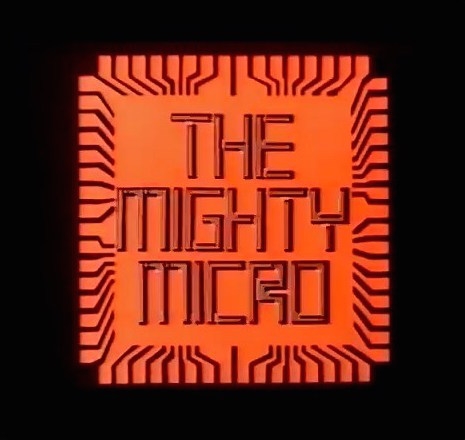
J.G. Ballard told the Paris Review that one of his most important sources was a friend’s trash.
As far as reading for research is concerned, I’ve always been very fortunate in my friends. For years, Dr. Christopher Evans, a psychologist in the computer branch of the National Physical Laboratory (whom I visited regularly until his death—his lab was just a ten-minute drive away), literally sent me the contents of his wastebasket. Once a fortnight, a huge envelope arrived filled with scientific reprints and handouts, specialist magazines and reports, all of which I read carefully.
In his last book, the autobiography Miracles of Life, Ballard sketched his late friend, who died of cancer in 1979, during the filming of his last TV series, The Mighty Micro:
Chris Evans drove into my life at the wheel of a Ford Galaxy, a huge American convertible that he soon swapped for a Mini-Cooper, a high-performance car not much bigger than a bullet that travelled at about the same speed. Chris was the first ‘hoodlum scientist’ I had met, and he became the closest friend I have made in my life. In appearance he resembled Vaughan, the auto-destructive hero of my novel Crash, though he himself was nothing like that deranged figure. Most scientists in the 1960s, especially at a government laboratory, wore white lab coats over a collar and tie, squinted at the world over the rims of their glasses and were rather stooped and conventional. Glamour played no part in their job description.
Chris, by contrast, raced around his laboratory in American sneakers, jeans and a denim shirt open to reveal an Iron Cross on a gold chain, his long black hair and craggy profile giving him a handsomely Byronic air. I never met a woman who wasn’t immediately under his spell. A natural actor, he was at his best on the lecture platform, and played to his audience’s emotions like a matinee idol, a young Olivier with a degree in computer science. He was hugely popular on television, and presented a number of successful series, including The Mighty Micro.
I’m afraid Evans’ producers at ITC made him cover up his Iron Cross, but The Mighty Micro is up on YouTube (except episode two, which you can find at archive.org), and it’s fascinating to watch. Based on Evans’ book of the same name, the series looks at the history of counting machines, calculators and computers in order to understand the radical changes the microprocessor will bring about over the coming decades.
Of course, some of the show’s predictions are wide of the mark. Citizens of the UK were not able to vote through their television sets by the mid-80s, computers have not eliminated war, and as you are no doubt painfully aware, robots have not yet replaced our teachers or bosses, or delivered the five-day weekend. The series’ emphasis on the psychological dimension of technological change, however, is properly Ballardian, and many of its claims are eerily prescient. The third episode hints at the ways our notions of privacy will be reshaped by computers; the fourth, which includes a look at a 1979 prototype of a Kindle-type device, ends with this message-in-a-bottle to the present moment:
The one note of warning is sounded by the compelling nature of the computer itself. Increasingly, it will draw you into an obsessive embrace, where the world comes to you in your home. The current limitless fascination with microprocessor-based toys is but a tiny indicator of the trend towards an introverted society.
With the computer as an increasingly interesting and useful companion, could the factories and office blocks empty, commuter lines fall silent, as we retreat into our own private universe?